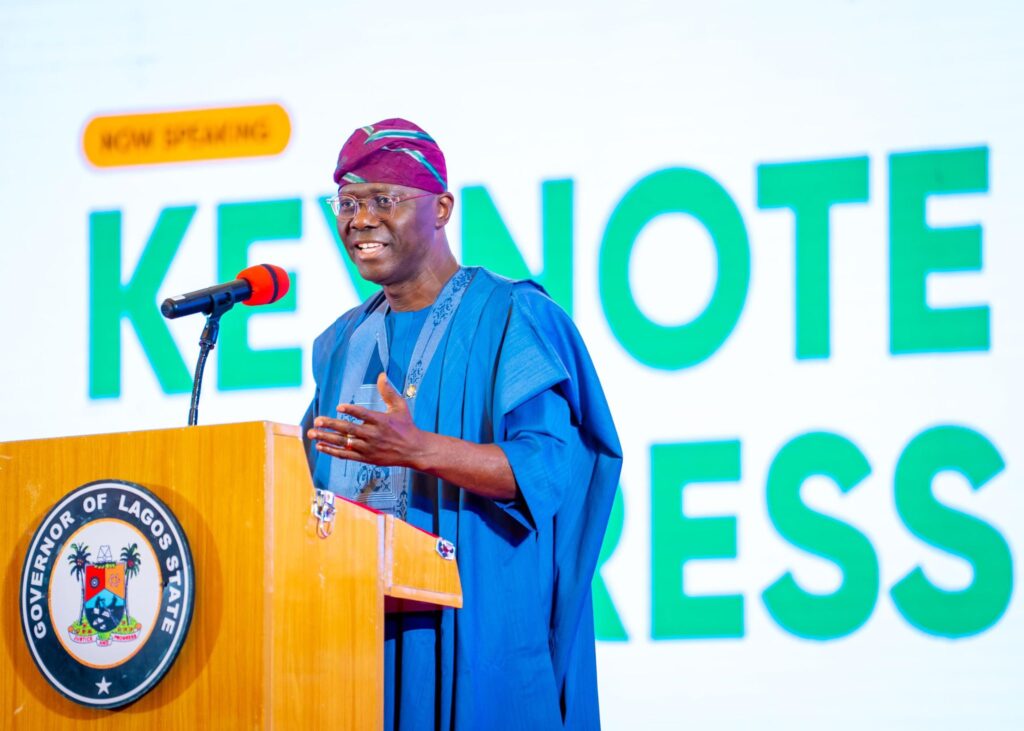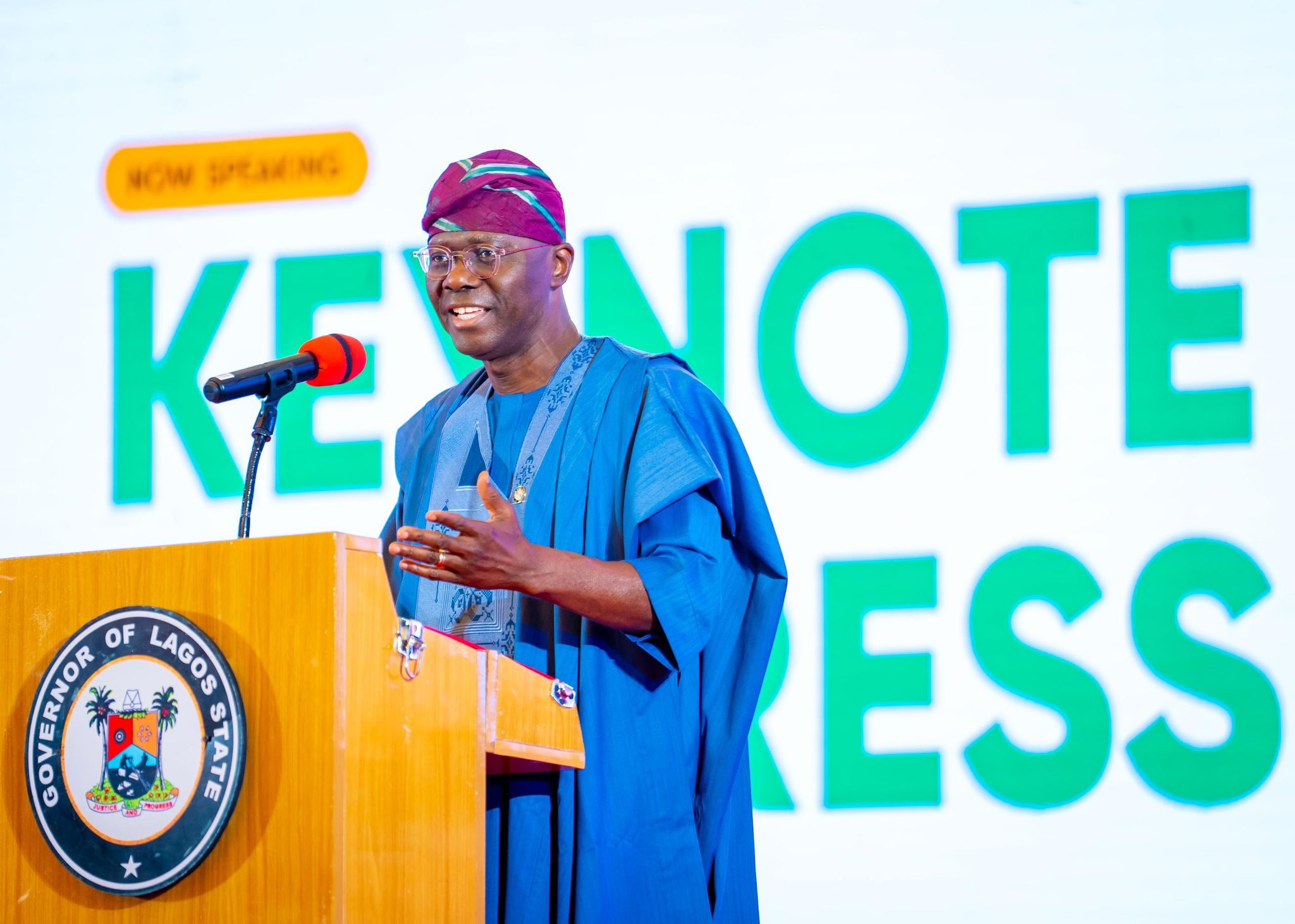By Uche Nnadozie
In a country where electricity supply remains an elusive luxury for millions, the Lagos State Government has chosen a bold and transformative path — one that could redefine not only the energy landscape of Nigeria’s commercial capital but also set a benchmark for other states.

At the recently held Lagos Electricity Market Summit, Governor Babajide Sanwo-Olu unveiled an ambitious plan to generate six gigawatts (GW) of power over the next three years through a combination of gas-fired, solar, and captive power projects. This bold target is not just a headline-grabbing figure; it signals a deep commitment to clean energy, regulatory reform, and long-term energy security.
The backdrop to this initiative is the state Electricity Law, signed into law in December 2023. This landmark legislation lays the legal groundwork for the decentralisation of electricity generation and distribution within the state. By doing so, it empowers the state to act independently of the national grid —an aging and often unreliable infrastructure that has failed to meet the energy demands of Nigeria’s growing population.
What makes this move especially significant is not just the power generation target, but the philosophy behind it. The governor made it clear at the summit that energy independence is not merely about reducing blackouts; it’s about transforming Lagos into a 24-hour economy. That’s a vision where markets, small businesses, industries, and even informal sector operators can run their operations efficiently, productively, and most importantly — without the financial and logistical burden of self-generating power.
The economic logic is sound. In Lagos, as in much of Nigeria, businesses and households spend billions annually on diesel and petrol generators. This isn’t just an environmental disaster; it’s a massive drain on productivity and disposable income. By shifting to clean and reliable energy sources, Lagosians could redirect those resources into education, healthcare, innovation, and enterprise. The multiplier effect on the local economy would be nothing short of revolutionary.
Furthermore, this initiative has the potential to boost investor confidence in Lagos as a hub for innovation and sustainable development. Through Expressions of Interest, the state is actively courting private investment for grid-scale power projects. This strategy reflects a progressive understanding of governance: rather than monopolizing control, the state is creating an enabling environment for private enterprise to thrive under clear regulations and strong oversight.
To ensure the viability and sustainability of this transition, the state government has also established critical institutions such as the Lagos Electricity Regulatory Commission and the Independent System Operator. These bodies are charged with licencing, compliance, field operations, and consumer protection. Such proactive governance frameworks are rare in the Nigerian context, where bureaucracy and regulatory opacity often deter private sector participation.
Sanwo-Olu’s message to stakeholders at the summit was both urgent and optimistic. He declared: ‘This new journey we have started has a destination, which is to reduce, if not totally eliminate, reliance on the national grid’. His administration understands that achieving energy independence by 2030 requires aggressive planning, execution, and collaboration.
But Lagos cannot do this alone. The governor’s call for multi-stakeholder collaboration — between the government, private sector, civil society, environmental advocates, and the media —underscores the complexity of energy reform. No single actor has the resources or expertise to tackle all the challenges. Only through coordinated action, shared vision, and trust can the goal of “energy for all” become a reality.
The commitment extends beyond large-scale generation projects. The government also plans to retrofit 22,000 streetlights across the state to improve energy efficiency and reduce grid pressure. This is a small but meaningful step that shows attention to detail and an understanding of the need for an integrated approach to energy management.
Moreover, the Commissioner for Energy and Mineral Resources, Mr. Abiodun Ogunleye highlighted that the state is revamping its Integrated Resource Plan and has activated the Lagos Gas Master Plan. These plans are not just documents; they are blueprints for how Lagos intends to harness and manage its energy resources efficiently in the years to come.
It’s not an overstatement to say that if Lagos succeeds in this endeavor, it will change the narrative around electricity supply in Nigeria. It could inspire other subnational entities to take control of their energy destinies, using a blend of legislative reform, public-private partnerships, and institutional capacity building.
However, there will be challenges. Financing, project execution, community engagement, and ensuring equitable access to power are all significant hurdles. But the Lagos model, if well executed, offers a template that balances ambition with pragmatism.
The journey to energy independence is not just a technical or economic one — it’s deeply political and social. It touches every Lagosian’s life, from the market woman in Agege to the startup founder in Yaba. If this plan succeeds, it won’t just power buildings; it will power dreams, uplift communities, and reaffirm Lagos’ role as Africa’s leading megacity.
Lagos has lit the match. Now, it must keep the flame alive
